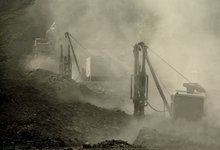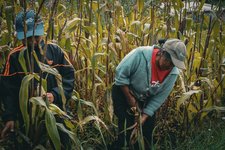What lessons does France's Duty of Vigilance law have for other national initiatives?

Photo: Pomemick, Getty Images via Canva
This blog is part of a series 'Towards Mandatory Human Rights Due Diligence'.
Last week, a group of French city mayors and NGOs (Notre Affaire à Tous, Eco Maires, Sherpa and ZEA) sent the first formal notice under the France's Duty of Vigilance law of 2017 to the gas company Total. They requested that the company take measures to identify the risks to human rights and the environment caused by its emissions of greenhouse gas, as well as adequate preventive measures against climate change.
As initiatives on mandatory human rights due diligence burgeon across Europe, the French Duty of Vigilance law certainly appears as a milestone. The way it will be used by civil society and applied by judges is bound to raise interest well beyond France's borders.
A pioneering law
This legislation is unprecedented. For the first time, national legislation - put forward by a coalition of human rights organisations, trade unions and members of parliament - is addressing the harmful impacts of multinational companies on human rights and the environment, creating binding obligations for companies, and providing judicial avenues for victims.
The French Duty of Vigilance law is not only a formal recognition that soft law principles and voluntary initiatives are insufficient. It also translates into legal terms an economic reality: the decisive influence of parent companies over their subsidiaries and their supply chain when it comes to preventing and remediating human rights and environmental violations. To a certain extent, the choice of vigilance as a new legal term has enabled this paradigm change to enter the realm of hard law.
Some steps to follow
The final version of the Law has been deprived of some fundamental provisions - such as shifting the burden of proof onto companies - which would have ensured a more effective corporate liability regime. This should be taken into account by other national initiatives considering similar laws.
However, the Duty of Vigilance law still has some important features. First, the law not only requires companies to take measures to identify risks within their supply chain and to prevent violations, it also specifies that those measures must be adequate and effectively implemented. These qualifications are essential: companies cannot simply pay lip service to the measures listed under the law or interpret the legal requirements as a formal "tick-box" exercise.
Second, companies must include these measures in a “vigilance plan” and make it public. This transparency requirement should enable stakeholders to scrutinize whether a company has correctly identified the risks caused by its activities, and whether the measures taken to address those risks are adequate and effectively implemented. Sherpa has released detailed Vigilance Plan Reference Guidance precisely to help all stakeholders understand the legal requirements and contribute to a proper implementation of the law.
Third and most importantly, judicial mechanisms have been included to enforce the law and provide remedies to victims. Any interested party may ask a judge to issue an order for a company to comply with the law. If a company’s failure to comply with the law has caused damage to a third party, that third party may request compensation under common civil liability law. Such judicial provisions are key: any mandatory human rights due diligence legislation which does not provide for adequate sanctions and mechanisms for enforcement is bound to have a very limited effect.
Some loopholes to avoid
Two years after the adoption of the law, scrutiny over companies’ vigilance has proven to be complex. In the absence of an official list of companies covered, it is often difficult to assess whether a company meets the thresholds provided by the law, (over 5,000 employees in France or 10,000 worldwide, including in the company’s subsidiaries). A further challenge is that the law has been construed by many companies as a mere reporting exercise.
Many of the plans published in 2018 and 2019 are extremely brief, barely mentioning that the company has complied with the five measures required by the law or listing some pre-existing general policies. Finally, there is no official government monitoring of whether companies are adequately implementing the law.
Civil society has stepped up to address these shortcomings through the recently launched vigilance-plan.org. This website, a joint project between Sherpa and CCFD, provides a (non-comprehensive) list of companies covered by the law, along with their respective vigilance plan when they have made it public, based on public and private databases.
These challenges should also serve as lessons for other national initiatives, for example when defining which companies should be covered by new human rights obligations, or how the implementation of these obligations should be monitored.
A new tool for justice
Despite these shortcomings, NGOs, trade unions, communities and victims now have access to a new legal tool to improve prevention and request accountability for human rights violations, and environmental harms, caused by French companies and their subsidiaries, subcontractors and suppliers.
We can expect judicial cases to be brought in the coming months - forcing companies to take their new vigilance obligations seriously, opening avenues for remedy, and finally putting in practice the expectations that the Duty of Vigilance law has created. It is hoped that our neighbours in Europe and beyond will learn from the French experience, and that it will pave the way for even more ambitious legislation.
Sandra Cossart is Director of Sherpa. Lucie Chatelain is Advocacy Officer at Sherpa


